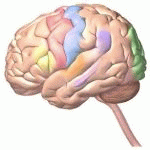Neurology
|
4 may 2012 19:04:38 |
| Viral-toxin interactions and Parkinson`s disease: poly(I:C) priming enhanced the neurodegenerative effects of paraquat (Journal of Neuroinflammation) |
|
Tweet Background:
Parkinson`s disease (PD) has been linked with exposure to a variety of environmental and immunological insults (for example, infectious pathogens) in which inflammatory and oxidative processes seem to be involved. In particular, epidemiological studies have found that pesticide exposure and infections may be linked with the incidence of PD. The present study sought to determine whether exposure to a viral mimic prior to exposure to pesticides would exacerbate PD-like pathology.
Methods:
Mice received a supra-nigral infusion of 5 mug of the double-stranded RNA viral analog, polyinosinic: polycytidylic acid (poly(I:C)) (), followed 2, 7 or 14 days later by administration of the pesticide, paraquat (nine 10 mg/kg injections over three weeks).
Results:
As hypothesized, poly(I:C) pre-treatment enhanced dopamine (DA) neuron loss in the substantia nigra pars compacta elicited by subsequent paraquat treatment. The augmented neuronal loss was accompanied by robust signs of microglial activation, and by increased expression of the catalytic subunit (gp91) of the NADPH oxidase oxidative stress enzyme. However, the paraquat and poly(I:C) treatments did not appreciably affect home-cage activity, striatal DA terminals, or subventricular neurogenesis.
Conclusions:
These findings suggest that viral agents can sensitize microglial-dependent inflammatory responses, thereby rendering nigral DA neurons vulnerable to further environmental toxin exposure. |
| 464 viewsCategory: Neurology |
 DRD2 and PPP1R1B (DARPP-32) polymorphisms independently confer increased risk for autism spectrum disorders and additively predict affected status in male-only affected sib-pair families (Behavioral and Brain Functions) DRD2 and PPP1R1B (DARPP-32) polymorphisms independently confer increased risk for autism spectrum disorders and additively predict affected status in male-only affected sib-pair families (Behavioral and Brain Functions)Lipopolysaccharide-induced neuroinflammation leads to the accumulation of ubiquitinated proteins and increases susceptibility to neurodegeneration induced by proteasome inhibition in rat hippocampus (Journal of Neuroinflammation) 
|
| blog comments powered by Disqus |
MyJournals.org
The latest issues of all your favorite science journals on one page
The latest issues of all your favorite science journals on one page



